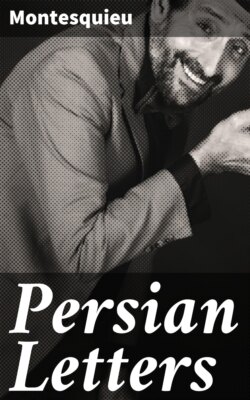Читать книгу Persian Letters - Montesquieu - Страница 10
На сайте Литреса книга снята с продажи.
VII
ОглавлениеTable of Contents
Although Montesquieu lived in England for eighteen months, there is but little to tell of his visit. According to his custom he went everywhere, and saw, if not everybody, certainly Walpole, Pope, and Swift. Montesquieu derived immense benefit from his travels, because he was always pliant to the manners of the country in which he sojourned. “When I am in France,” he said, “I swear friendship with everybody; in England, with nobody; in Italy, I do the agreeable all round; in Germany, I drink with the whole world.” He found England the most useful country to visit. Germany, he thought, was made to travel in, Italy to rest in, England to think in, and France to live in.
Montesquieu left behind him a set of notes on England, from which we can gather and condense his impressions.
In London the people eat much fleshmeat, with the result that they become very stout, and collapse at forty or forty-five.
The streets of London are so bad, that it is advisable to make one’s will before taking a hackney-coach.
The young English noblemen are divided into two classes: those who, having been to the University, have some learning, and are consequently shamefaced and constrained; and the shameless ones who know nothing, and are the petits-maîtres of the nation. But the English in general are modest.
Paris is a handsome city where there are ugly corners; London is a villainous place containing some very beautiful things.
The complaints of foreigners, especially of the French, in London, are lamentable. They say that they cannot make a friend; and that their overtures are received as injuries. But how can the Kinski, the Broglies, and La Vilette, with their profuse French manners, expect the English to be like them? How should the English, who do not love each other, love strangers?
I look on the King of England simply as a man who has a pretty wife, a hundred servants, a handsome equipage, and a good table. People think him fortunate; but when he is left alone, and his door closed, and he has to quarrel with his wife and his servant, and swear at his butler, he is not so much to be envied after all.
By dint of suspecting everybody, people grow hard-hearted here.
There are some Scotch members of parliament who can get only two hundred pounds for their votes, and who sell them at that price.
A minister thinks only of defeating the opposition; and to that end he would sell England – the whole world.
Extraordinary things are done in England for money. The English do not even know the meaning of honor and virtue.
I do not know what will be the upshot of European emigration to Africa and the West Indies; but I am certain that England will be the first nation to be deserted by its colonies.
The English make little effort at politeness, but are never impolite.
Women in England are reserved because they see little of the men. If a foreigner speaks to them, they suspect his intentions. “’Je ne veux pas,’ disent-elles, ‘give to him encouragement.’”
There is no religion in England. If religion is spoken of everybody laughs.
England is at present the freest country in the world, not excepting any republic. I call it free, because unlimited power is in the hands of the King and the Parliament. A good English citizen will therefore endeavour to protect liberty as much against the Commons as against the King.
Montesquieu’s impressions of England were written on his lands as well as in his books; for when he returned to France he had his ancestral estate of La Brède laid out in the English style.
